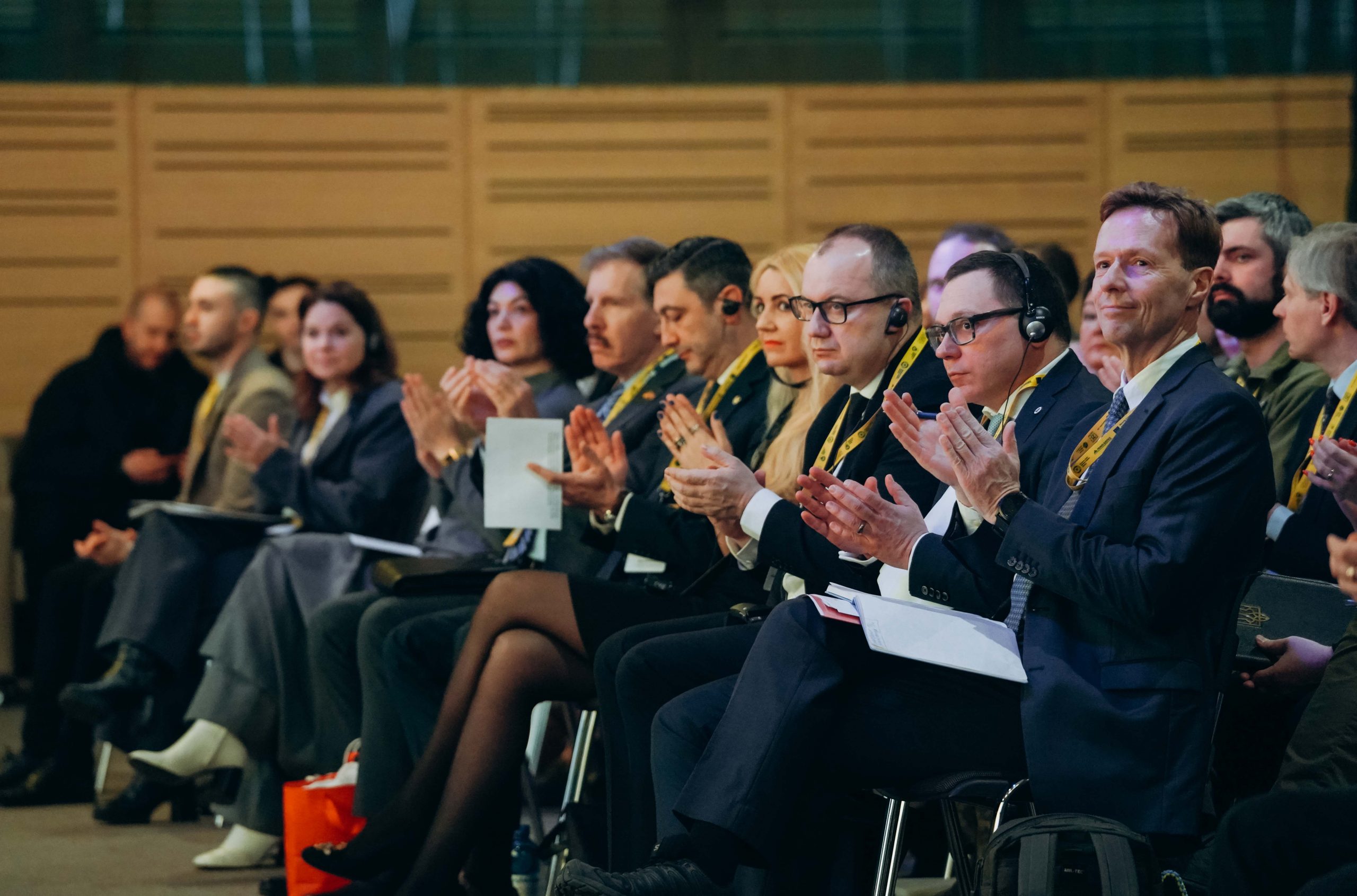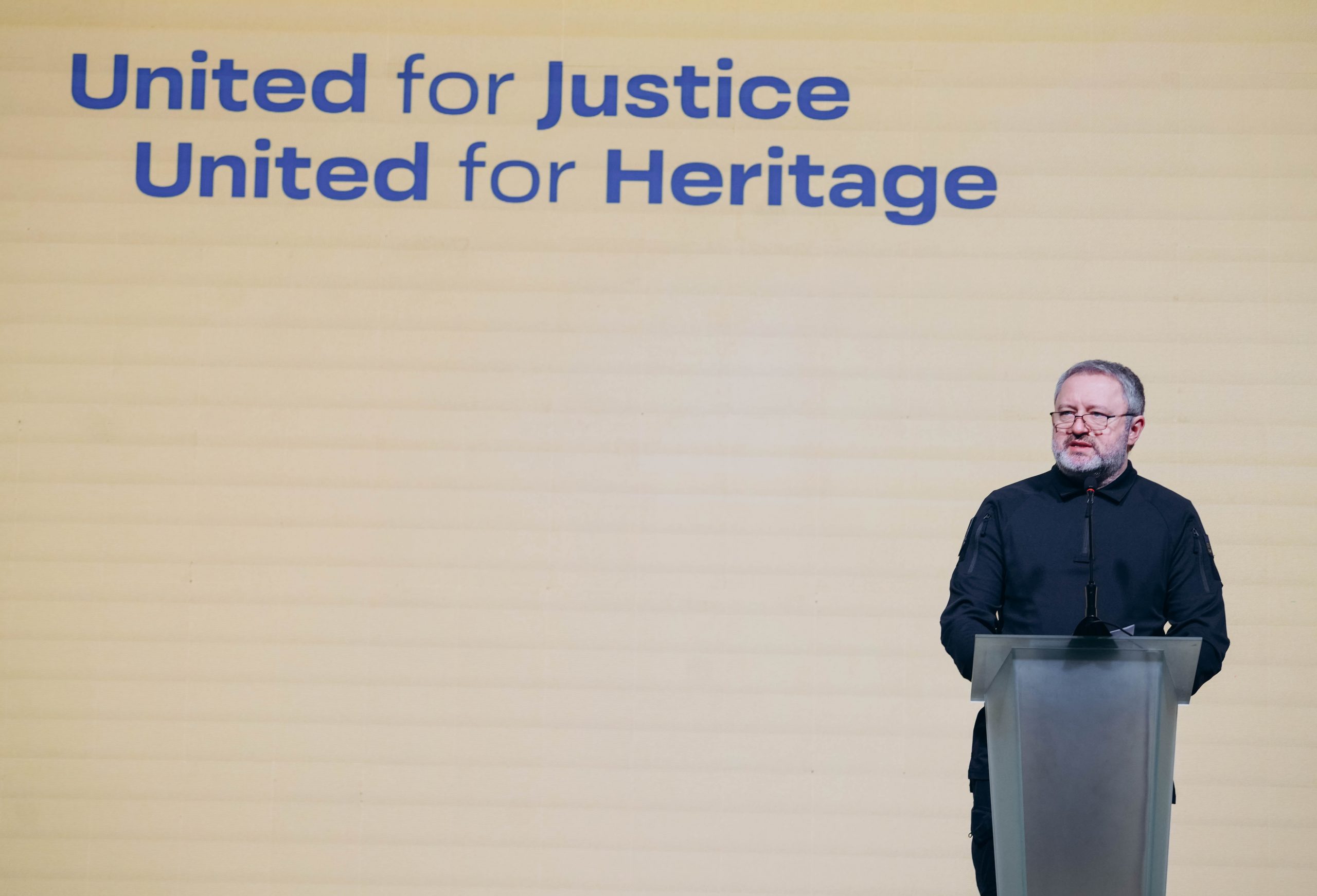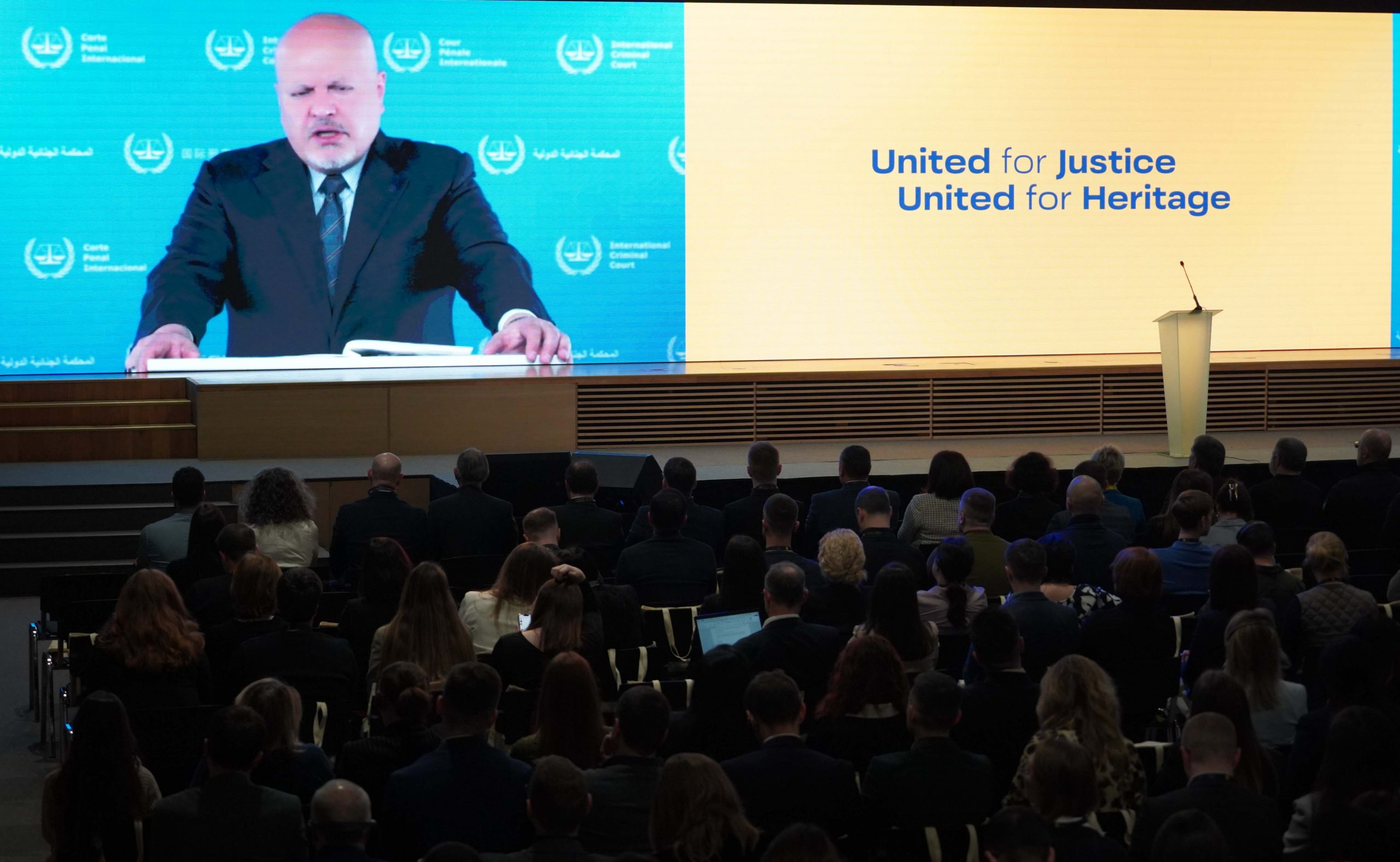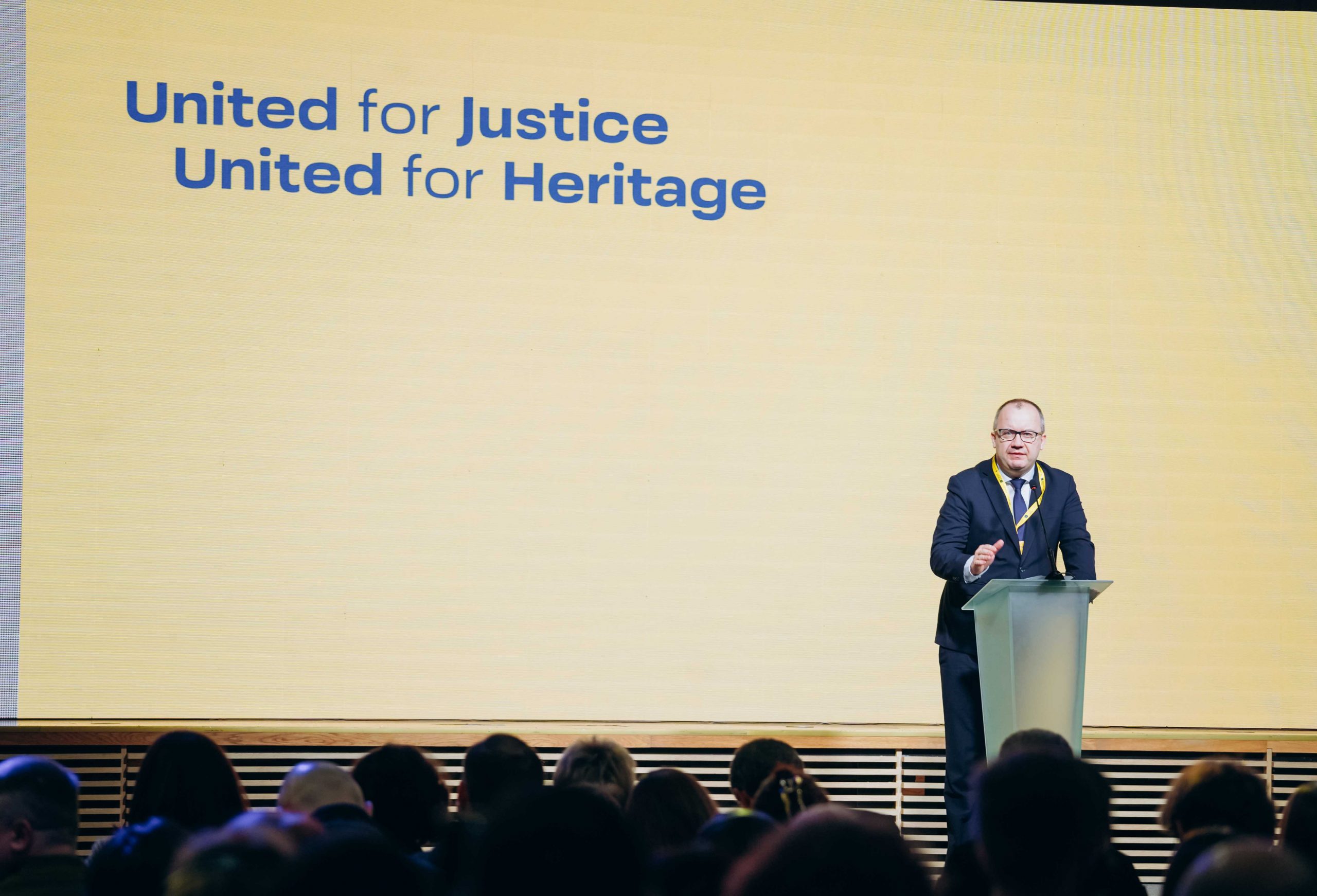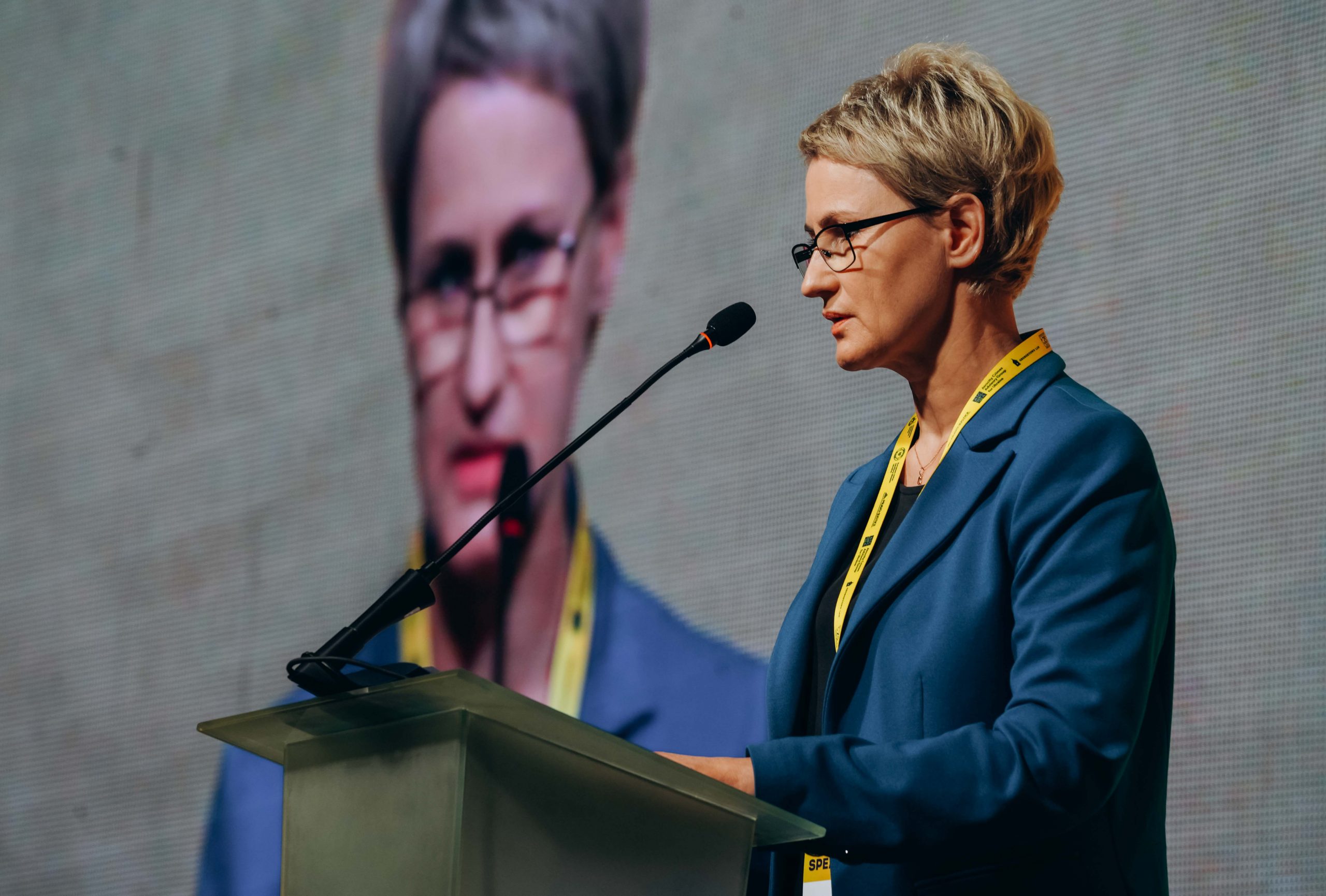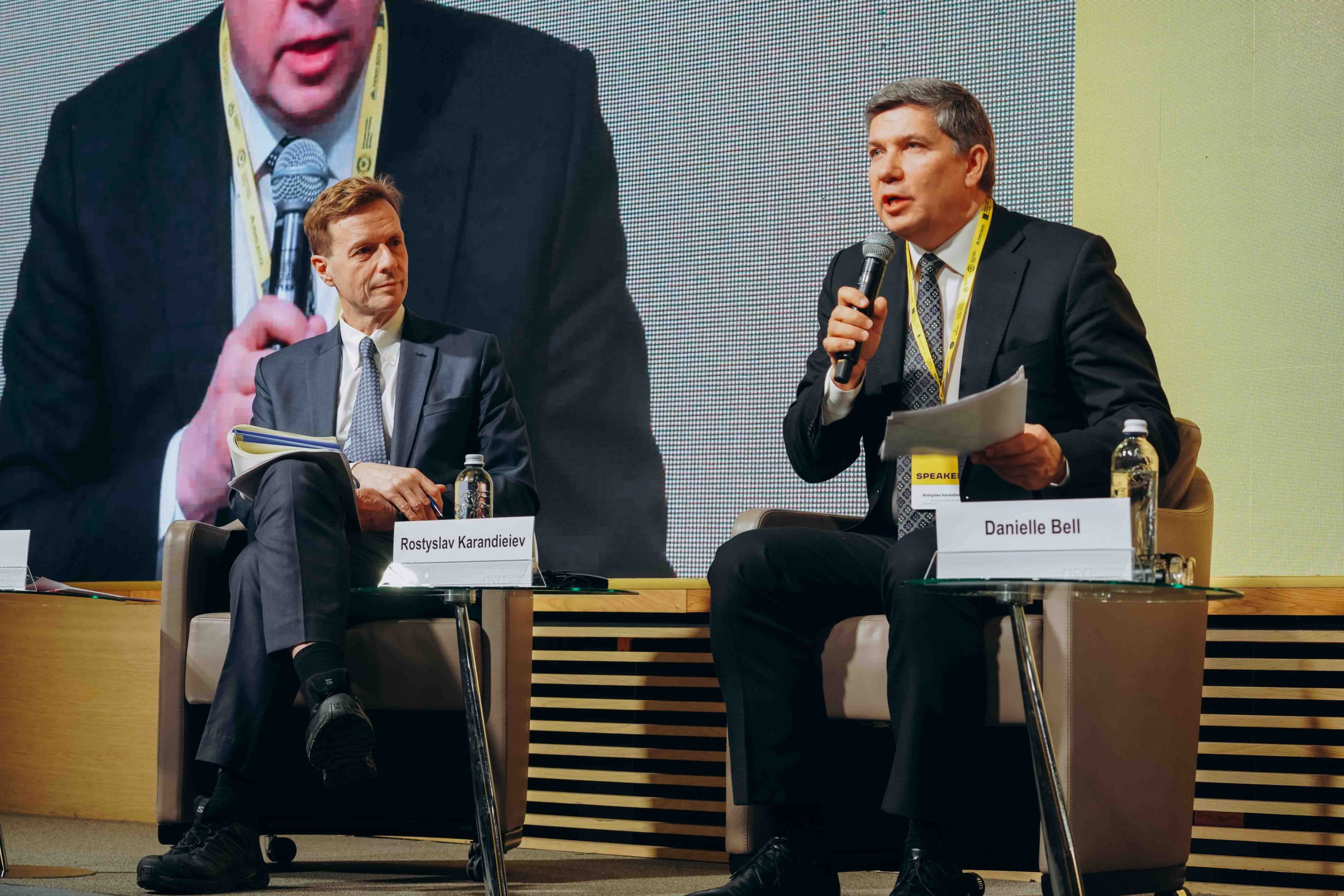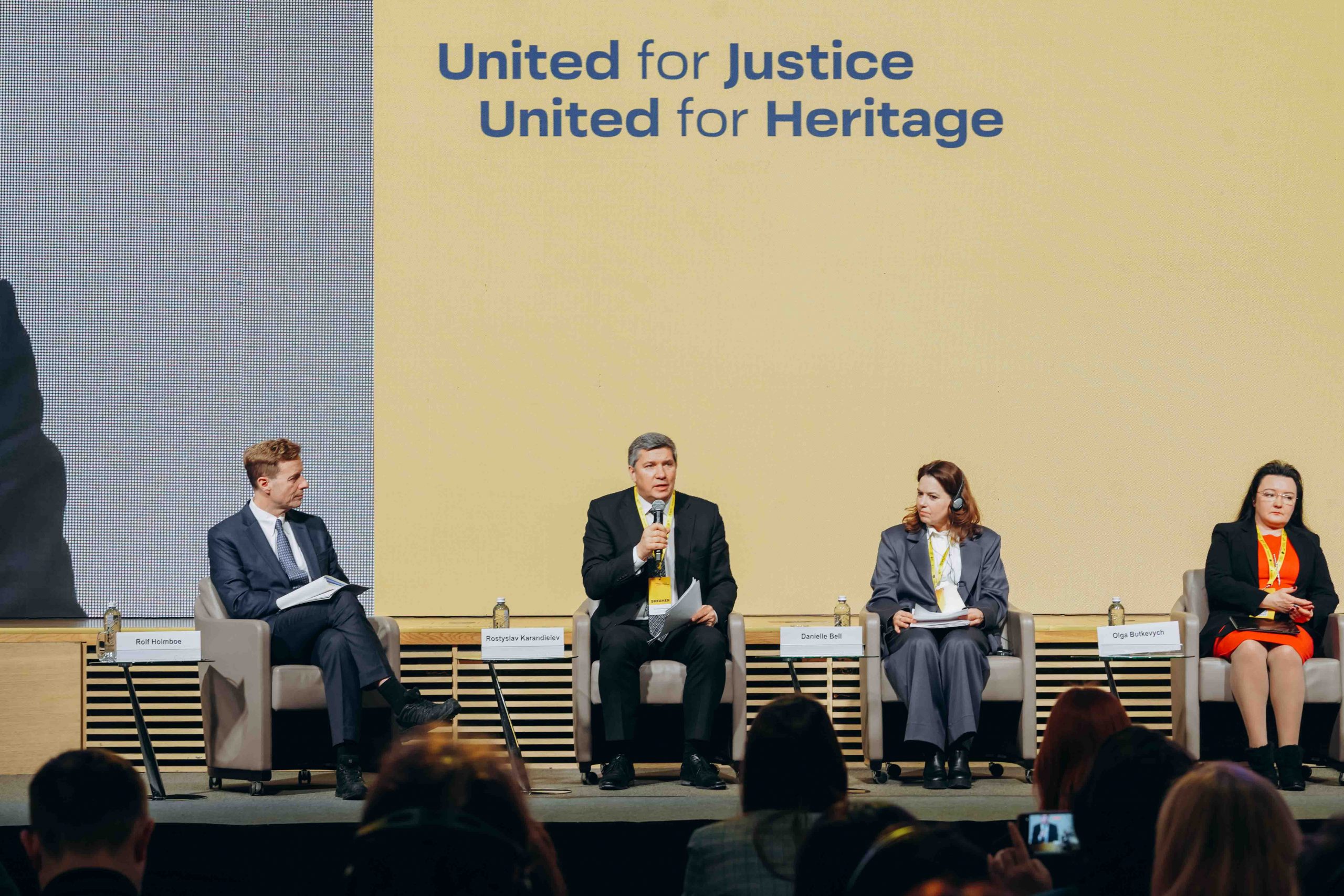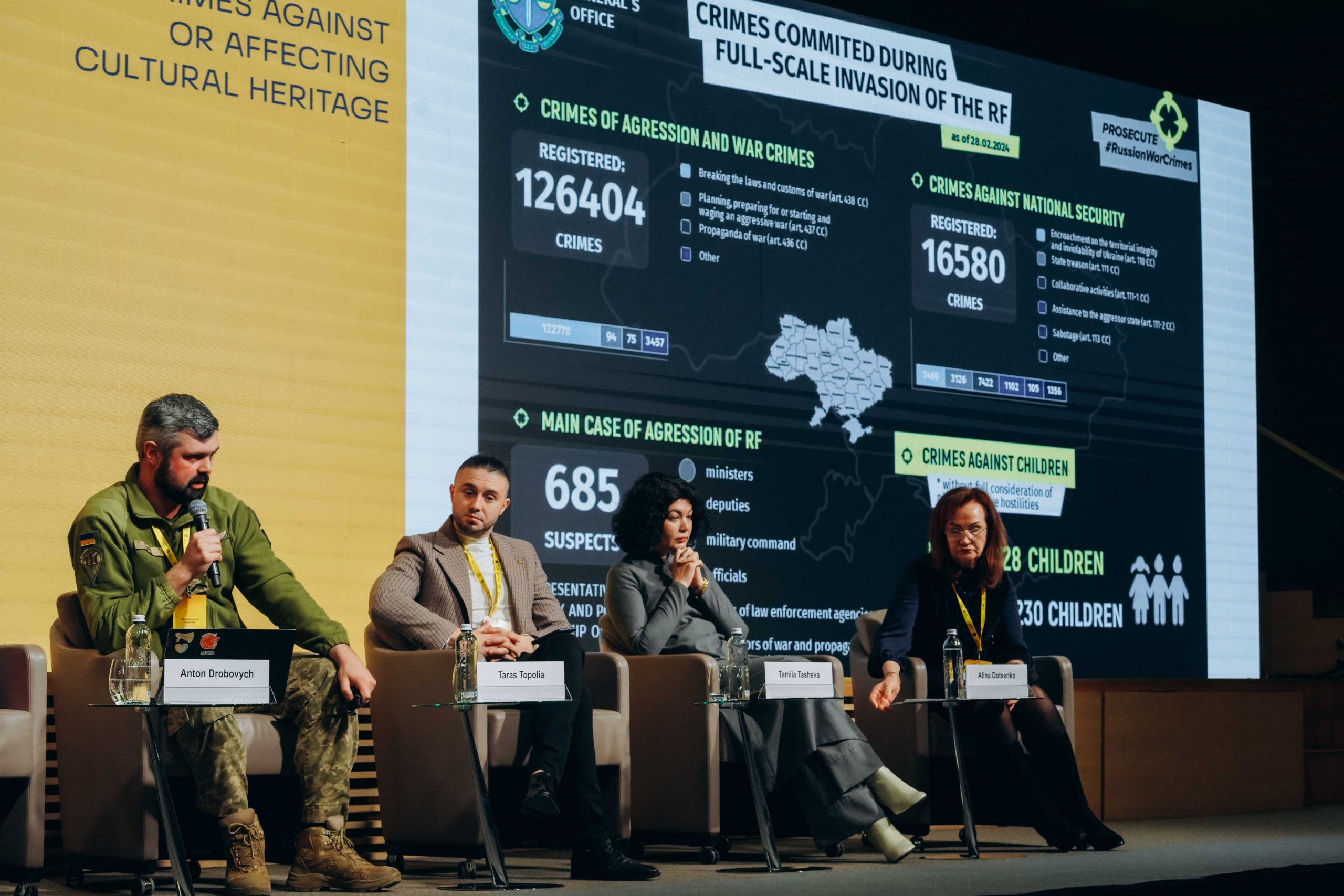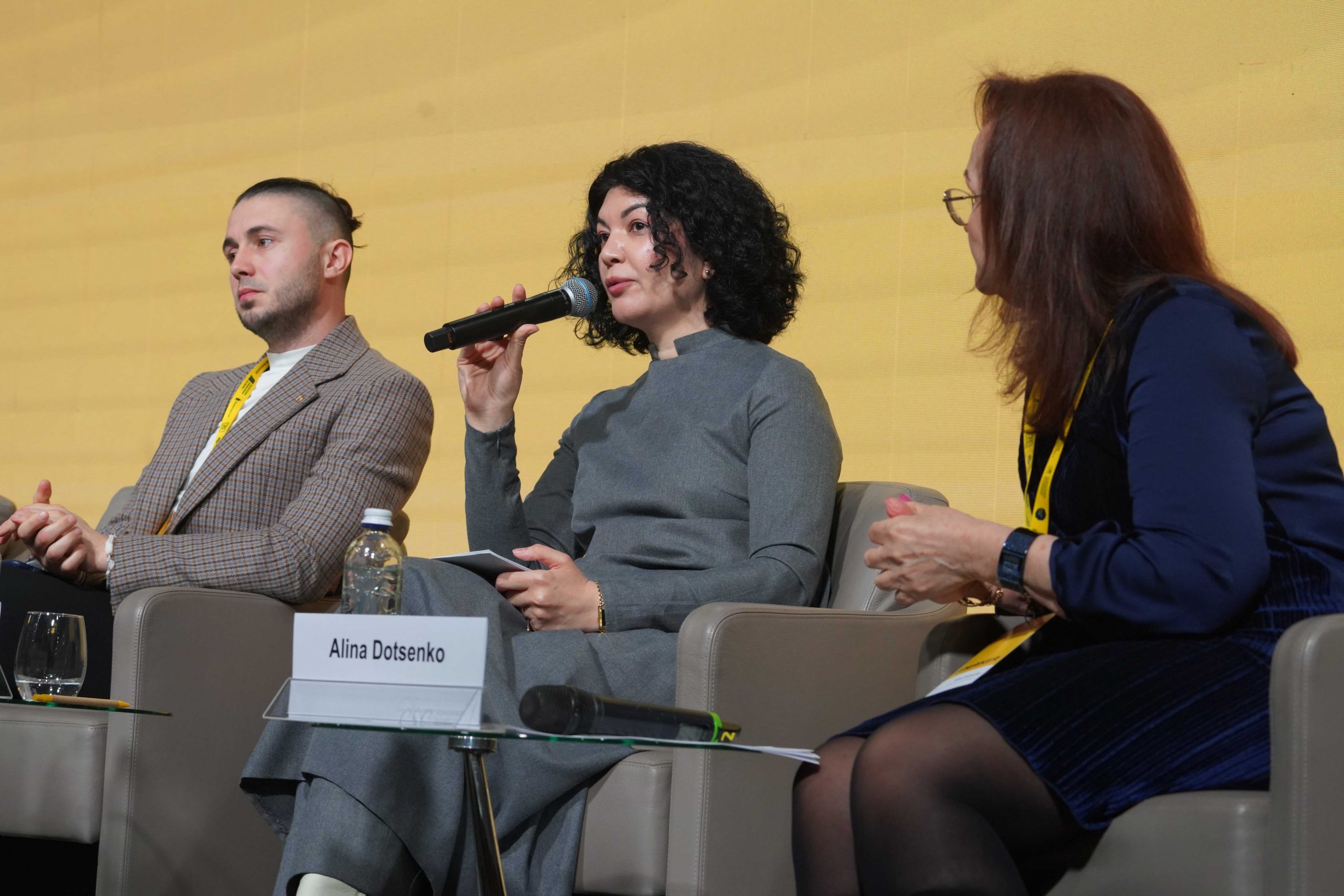“United for Justice. United for Heritage”: Preserving Ukrainian Cultural Identity
March 05, 2024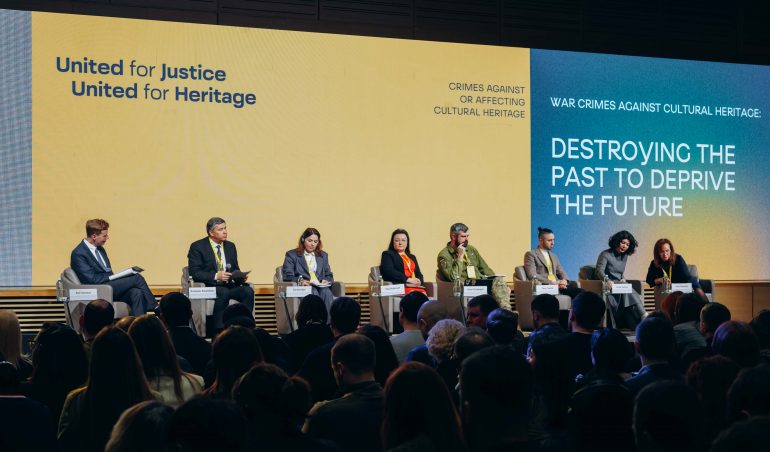
Since the illegal annexation of Crimea in 2014 and the onset of war in the Donetsk and Luhansk regions, followed by the full-scale invasion in 2022, Russia has relentlessly targeted Ukraine’s cultural landmarks. Churches, monuments, museums, libraries, and historic sites, which for centuries have been symbols of Ukraine’s rich ethnic and religious tapestry. The destruction of these cultural assets, intrinsic to Ukraine’s national memory and identity, represents a deliberate strategy by Russia to undermine Ukrainian sovereignty.
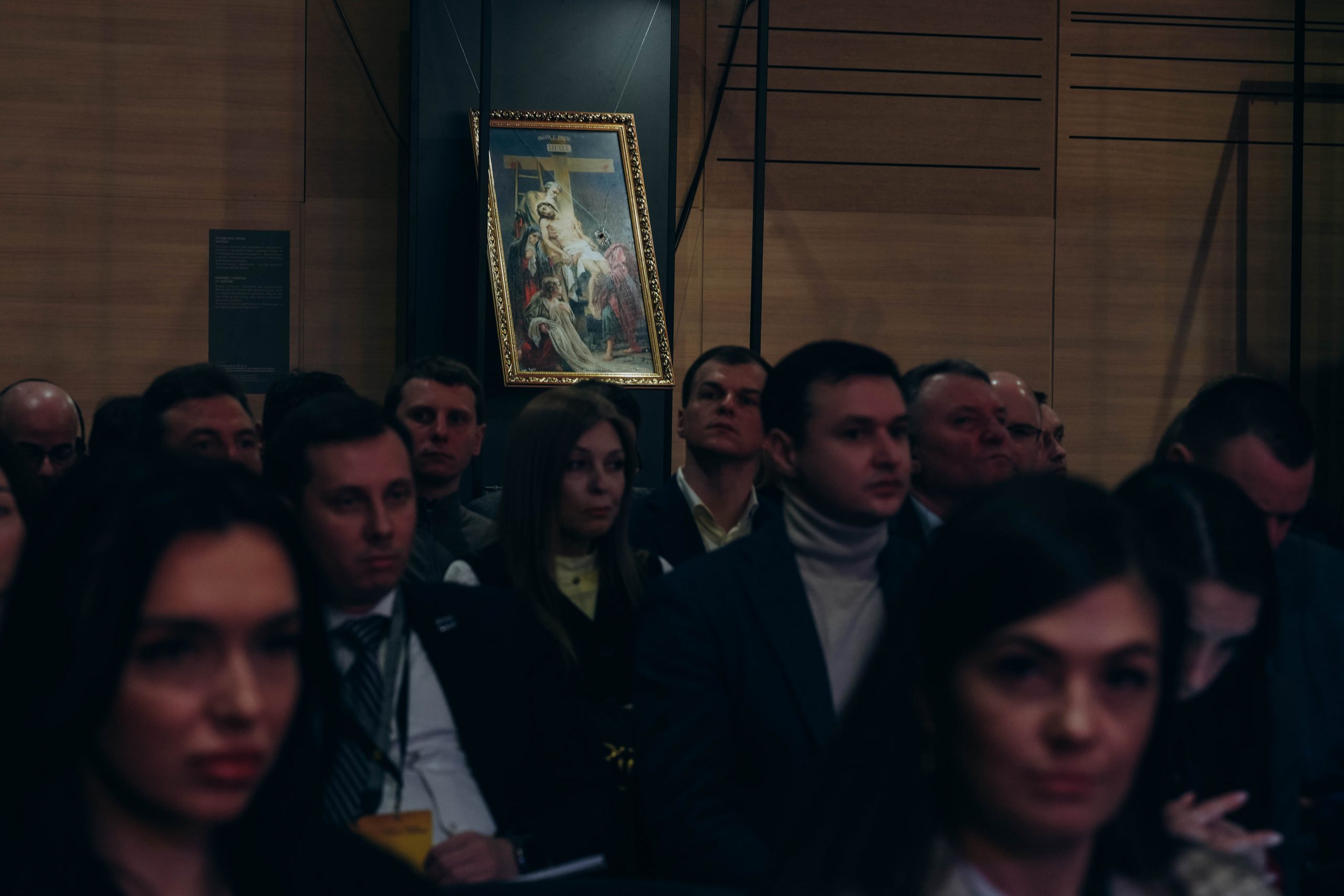
Russia’s assaults on Ukraine’s culture constitute yet another grievous crime: an attempt to erase Ukrainian identity and effectively nullify the Ukrainian nation. Such aggression calls for a robust response, with accountability for those responsible being paramount. This sentiment was a common thread throughout the presentations at the high-level conference “United for Justice. United for Heritage”, which convened last week in Kyiv. Organised by the Office of the Prosecutor General of Ukraine with the support of the European Union Advisory Mission (EUAM) Ukraine, an implementing entity of the Atrocity Crimes Advisory Group, and other partners, the event highlighted the pressing need to address these cultural crimes.
The conference aimed to address the critical legal challenges posed by these systematic attacks, discuss the progress in documenting and prosecuting these war crimes, explore effective investigative and prosecutorial strategies, and consider measures against the illicit trafficking of stolen cultural objects. The gathering of over 400 participants, including Ukrainian state authorities and global experts, facilitated discussions on the extent of damage and the importance of holding Russia accountable for its actions.
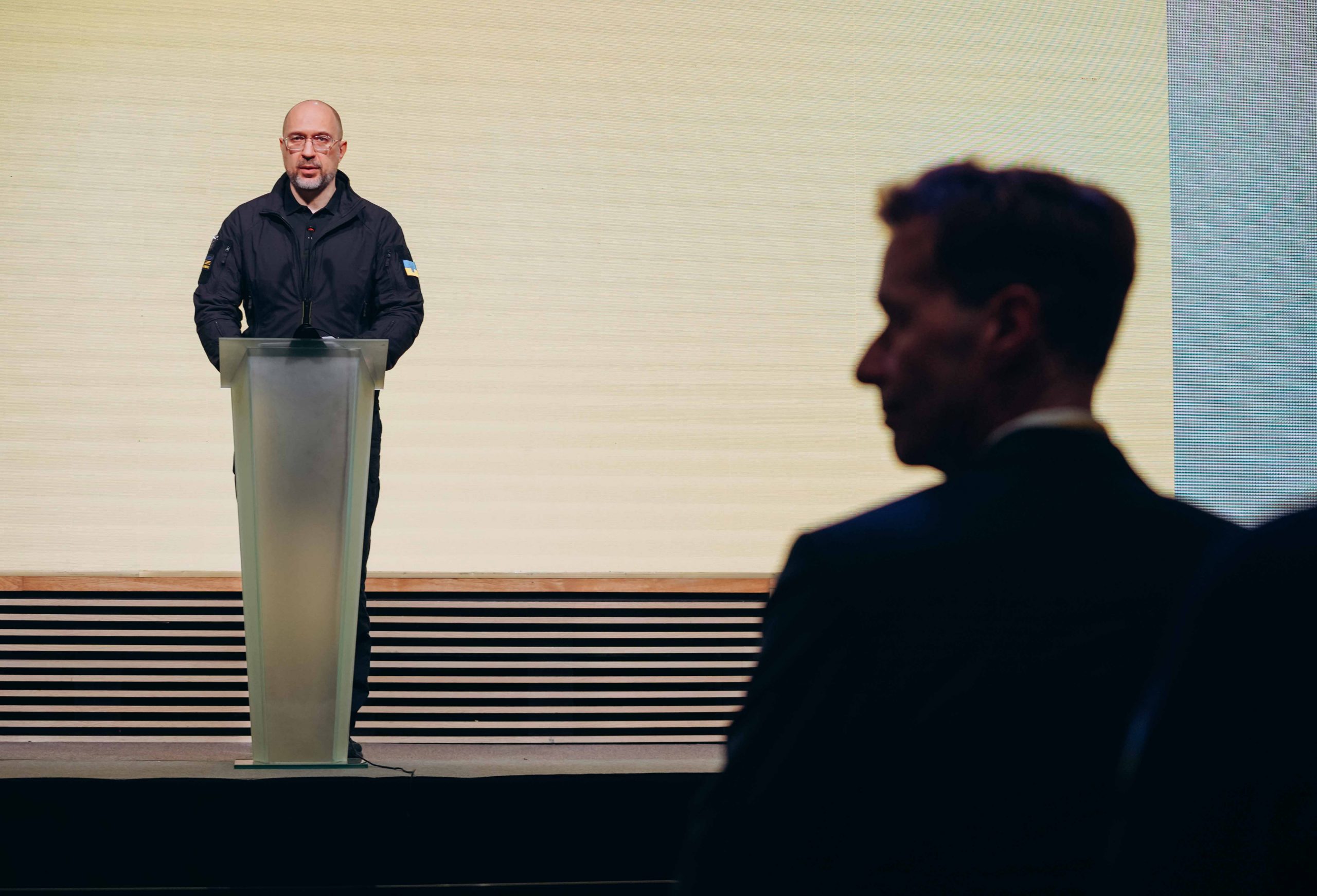
“The world needs a precedent of punishment for vandalism and savagery in the cultural sphere. This will be of great importance for all of humanity, for the protection and preservation of the heritage of our civilisation, in all parts of the world and on all continents,” stated Prime Minister of Ukraine, Denys Shmyhal, at the event’s opening.
Rolf Holmboe, the Head of EUAM Ukraine, who moderated one of the panels, expressed solidarity with Ukraine, emphasising the Mission’s commitment to supporting the investigation and prosecution of crimes against Ukrainian cultural heritage. “Tackling crimes against cultural heritage is a fundamental aspect of adhering to international humanitarian law, and holding the offenders accountable is key to achieving justice and reconciliation in post-conflict environments such as Ukraine,” said EUAM’s Head.
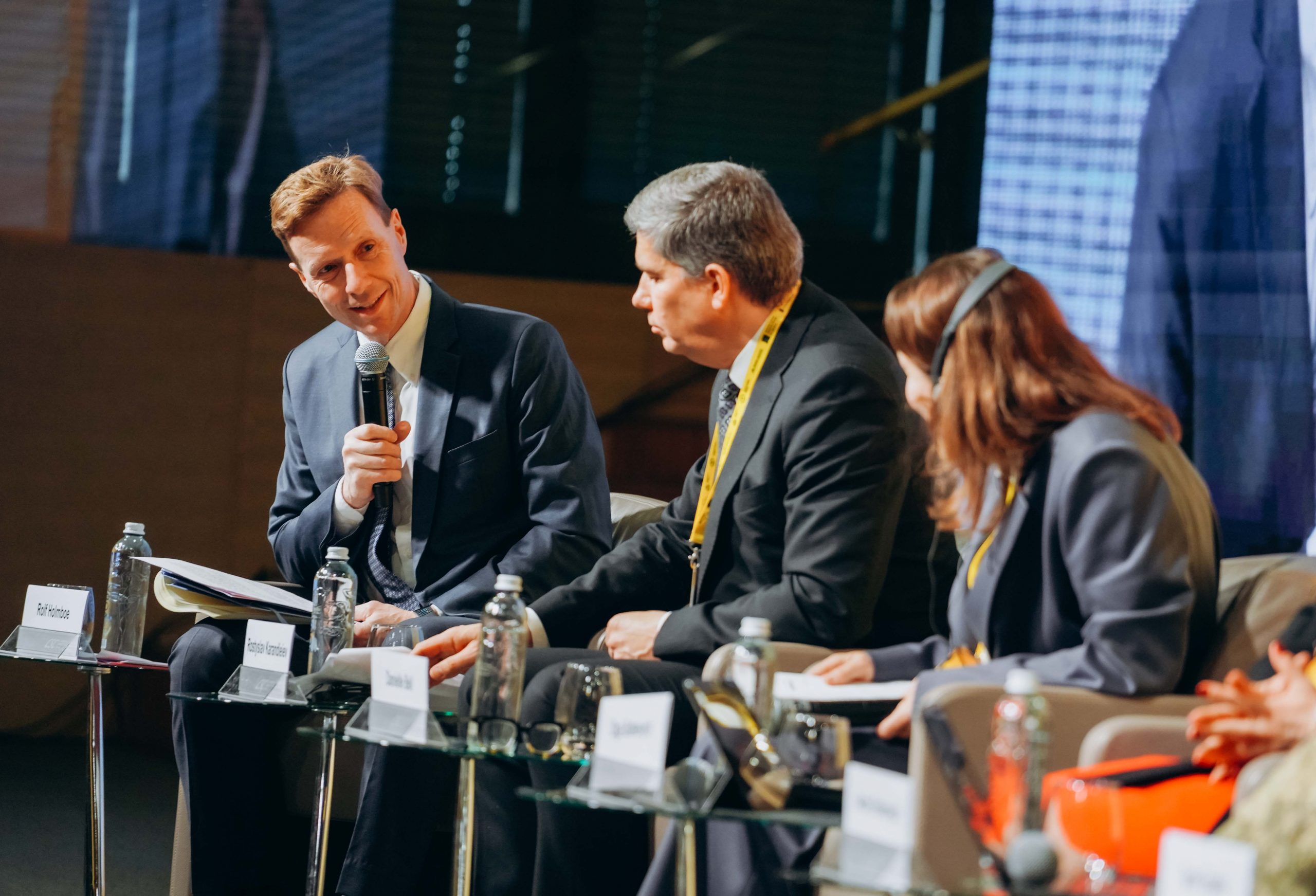
Rostyslav Karandieiev, Acting Minister of Culture and Information Policy of Ukraine, highlighted the existential threat posed by the destruction of cultural heritage. “Without culture, there is no nation – there is only a population, and there is no country – there is only a territory. Today, the aggressor state, as it has been doing for centuries, is deliberately committing cultural genocide against Ukraine,” Karandieiev declared.
Andrii Kostin, the Prosecutor General of Ukraine, informed that more than 60 investigations into crimes against cultural heritage are currently underway. He revealed the alarming scale of the destruction, with over 900 destroyed and damaged cultural sites, more than 40 Ukrainian museums looted, tens of thousands of stolen cultural artifacts. According to him, preliminary estimates of the damage caused by the war to Ukraine’s cultural heritage amount to 19 billion US dollars. Kostin emphasised the genocidal intent behind these actions. “The scale and purposefulness of these crimes is yet another evidence of the Kremlin’s intentions to commit genocide against the Ukrainian people,” he said.
It was announced at the conference that a special state register is to be created in Ukraine. All cultural heritage sites destroyed or damaged as a result of Russian aggression will be entered there. The register will be one of the tools for determining the amount of compensation to be demanded from Russia.
The participants were also addressed by Ladislav Hamran, President of Eurojust, Adam Bodnar, Minister of Justice of the Republic of Poland, Alex-Florin Florent, Prosecutor General of Romania, Nida Grunskene, Prosecutor General of Lithuania, and Juris Stukans, Prosecutor General of Latvia.
European Commissioner for Justice Didier Reynders, Director General of the Council of Europe’s Directorate-General for Human Rights and Rule of Law Christos Giacomopoulos, and Prosecutor of the International Criminal Court Kareem Khan spoke online.
The conference also served as a platform for international collaboration, with a meeting of the Joint Investigation Team (JIT) for the investigation of international crimes committed in Ukraine. The JIT, comprising seven national authorities, agreed to extend its work for two years, reaffirming the international commitment to justice.
The “United for Justice. United for Heritage” conference underscored the importance of holding accountable those responsible for crimes against cultural heritage. It showcased the resilience of the Ukrainian spirit and the global community’s determination to combat aggression and cultural erasure, ensuring justice in the face of war and destruction.
This event marks a continuation of the “United for Justice” conference series, which has evolved significantly over the past year. The series began with the inaugural “United for Justice” conference and was later expanded with the “United for Justice. United for Nature” follow-up, among other sessions.


